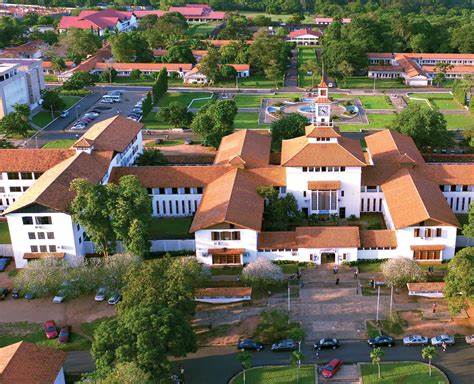Cracks in the Ivory Tower: University of Ghana Sanctions Over 100 Students Amid Broader Institutional Challenges

The University of Ghana, Legon—Ghana’s oldest and most prestigious tertiary institution—is once again in the spotlight. But this time, the headlines are not about academic breakthroughs or global partnerships. Instead, they centre on a sweeping wave of disciplinary actions that have reignited national conversations about student conduct, institutional governance, and the future of higher education in Ghana.
On June 16, 2025, the university announced the suspension of 14 students for two academic years due to disruptive behaviour and violations of university rules. In a parallel move, 97 students were sanctioned for examination malpractice, with penalties ranging from expulsions and suspensions to grade penalties and formal reprimands.
A Breakdown of the Sanctions
The disciplinary actions followed investigations by the university’s Disciplinary Committee. The offences included impersonation during exams, possession of unauthorized materials, and leaving exam halls with answer booklets. The university emphasized that these measures were necessary to uphold academic integrity.
“All students are advised to familiarise themselves with the University’s regulations and conduct themselves in a manner befitting members of our community,” said Mrs. Emelia Agyei-Mensah, the Registrar.
Strategic Vision Meets Institutional Strain
These disciplinary actions come at a time when the university is undergoing a significant transformation. In July 2024, the University of Ghana launched its 2024–2029 Strategic Plan, a bold roadmap anchored on five pillars: Transformative Student Experience, Impactful Research, Commitment to Faculty and Staff, Engagement and Partnerships, and Sustainable Resource Mobilisation.
The plan is part of a broader effort to reposition the university as a global leader in research and innovation. It is accompanied by revised statutes, a new research strategy, and a comprehensive manual on human resource and administrative policies.
Yet, the university’s ambitions are being tested by persistent challenges: legacy debts, infrastructure deficits, and industrial actions by staff unions. In early 2025, strikes by senior staff disrupted administrative services, delaying the academic calendar and frustrating students’ ability to register for courses or access essential services.
A $80 Million Bet on the Future
In a bid to redefine the student experience, the university has unveiled plans to construct an $80 million Students’ Experience Centre, a futuristic complex featuring AI labs, cinemas, lounges, and conference halls. The project, part of the university’s 75th anniversary legacy, aims to bridge the gap between academic rigor and student well-being.
Vice-Chancellor Prof. Nana Aba Appiah Amfo described the initiative as a “transformative space” that aligns with the university’s vision of nurturing resilience through a combination of technology and humanism.
Innovation and Entrepreneurship on the Rise
The university is also expanding its footprint in innovation. Through the Innovation of African Universities – Connecting Accra Project, funded by the British Council, UG is fostering student entrepreneurship and building national ecosystems for innovation. The project’s third phase includes partnerships with KNUST and UCC, signalling a collaborative approach to higher education reform.
The Bigger Picture: A Mirror to Society
The recent wave of student misconduct may reflect broader societal pressures, rising academic stress, limited job prospects, and a national culture where ethical lapses often go unchecked. But the university’s firm disciplinary stance also signals a renewed commitment to integrity.
At the same time, the institution’s strategic pivot toward research excellence, digital transformation, and student-centred learning offers a hopeful counter-narrative.
The Way Forward
To navigate these turbulent waters, the University of Ghana must:
-
Strengthen ethical education and mentorship across all levels.
-
Invest in digital surveillance and exam integrity systems.
-
Resolve labour disputes through proactive engagement.
-
Accelerate infrastructure projects like the Students’ Experience Centre.
-
Secure sustainable funding through public-private partnerships and research grants.
As Ghana’s flagship university, Legon must not only weather the storm—it must chart a new course for the nation’s higher education system.



0 Comments
No comments yet, be the first to comment